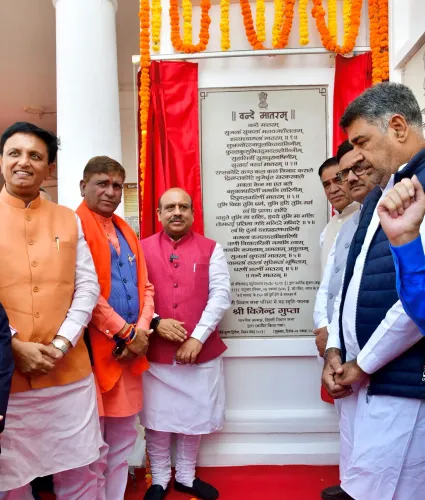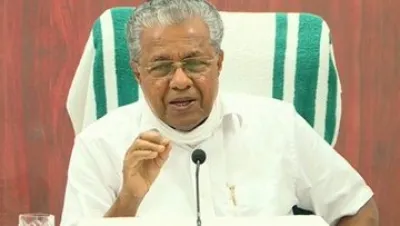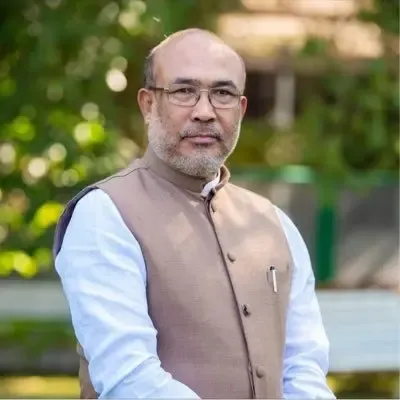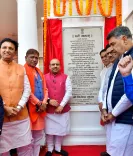Open Letter Highlights 'Unbearable and Unacceptable' Circumstances for Minorities in Bangladesh
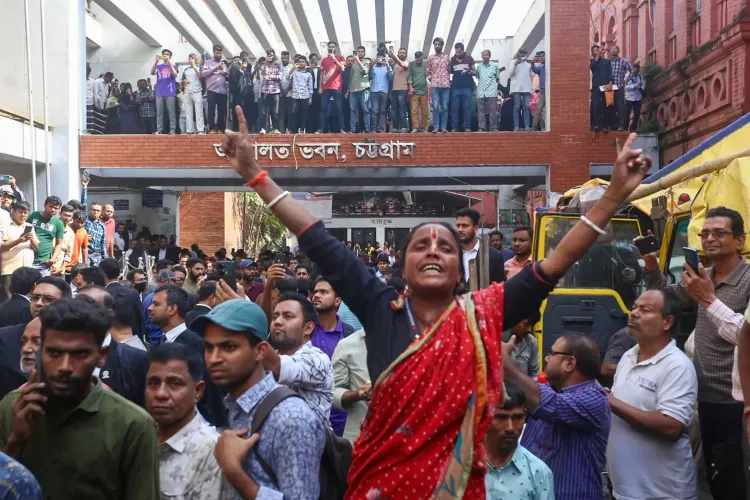
New Delhi, Dec 18 (NationPress) An open letter endorsed by nearly 500 individuals - comprising a multitude of former diplomats, public servants, senior government officials, armed forces personnel, and civil society members - has urged all citizens and institutions in Bangladesh to collaborate towards reinstating democracy and secularism, while safeguarding the rights of Hindus and other religious minorities in the nation. The letter emphasizes that the current circumstances are intolerable and unacceptable to the populace of India.
Coordinated by India's former High Commissioner to Bangladesh, Veena Sikri, and former ambassador Bhaswati Mukherjee, this initiative highlights that the overwhelming impact of the chaotic conditions in Bangladesh is disproportionately affecting the 15 million-strong minority communities, which include Hindus, Buddhists, Christians, as well as Shias, Ahmadiyyas, and others.
The letter states, "For over four months, fundamentalist Islamist groups have unleashed violent, terrorist attacks on religious minorities across the country in almost every district, involving desecration and vandalization of places of worship, abductions and rape, lynchings, extrajudicial executions, killings, forced conversions, along with wanton destruction of homes and business establishments. Even where there is irrefutable evidence, no action has been taken against the culprits."
It is important to note that Muhammad Yunus assumed the role of Chief Advisor of the Bangladeshi interim government on August 8, following the collapse of the government led by former Prime Minister Sheikh Hasina.
Initially, the series of events in July and August 2024 were described as a spontaneous uprising by students throughout Bangladesh. However, on September 24, 2024, Chief Advisor Muhammad Yunus stated at a gathering of the Clinton Global Initiative in New York that the regime change operation was, in fact, "meticulously designed", planned well ahead of time, and spearheaded by an advisor in the interim regime, who also serves as a Special Assistant to Yunus.
Prominent Indian scholars, former diplomats, and retired Army Generals, who signed the open letter, have collectively expressed their alarm and concern regarding the deteriorating situation in Bangladesh.
The letter asserts, "The agenda of the Islamists seems to be to instill fear and drive the religious minority population out of Bangladesh. It is noteworthy that Hindus and other minority communities across Bangladesh are resolutely resisting such attempts by Islamist groups. They seek to protect their rights as citizens of Bangladesh, as guaranteed by the nation’s Constitution."
The letter describes an "atmosphere of anarchy" prevailing in Bangladesh, where "mobocracy is the preferred method" of decision-making.
Additionally, the letter mentions the arrest and imprisonment of Chinmoy Krishna Das, a former member of the globally renowned ISKCON spiritual organization, along with his associates in the Sanatani Jagran Jote, who had presented an eight-point demand on behalf of religious minorities in Bangladesh. This included a call for the enactment of a minority protection law and the establishment of a ministry dedicated to minority protection.
The letter points out, "There has been no response from the Yunus administration regarding these demands. Chinmoy Krishna Das has been arrested on charges of sedition, denied bail without a hearing, and his lawyers are facing organized intimidation in their efforts to defend him and secure bail. He is being denied a free and fair trial."
The ongoing attacks on minorities in Bangladesh have raised significant concern in India, which shares a long border with Bangladesh. The letter indicates that, beyond the humanitarian aspects, there is a risk that the volatile situation in Bangladesh could spill across borders, disrupt communal harmony, and create serious law and order challenges in India.
The signatories of the letter urged the people of Bangladesh not to be influenced by "malicious anti-India campaigns" that aim to undermine the foundation of mutually beneficial cooperation established over the past five decades and more.
Finally, the letter expresses worries that representatives of Islamist political parties and organizations, many of whom have joined the interim administration, are imposing decisions that contradict the very essence of Bangladesh's 1972 Constitution. Given that these groups have rarely received electoral support from the citizens of Bangladesh, the current situation contradicts the broader interests of the public. The crisis facing Bangladesh can only be resolved through early, free, fair, and inclusive elections. The letter concludes by demanding an immediate end to attacks on minorities, their properties, businesses, and coercion to force them to leave.

